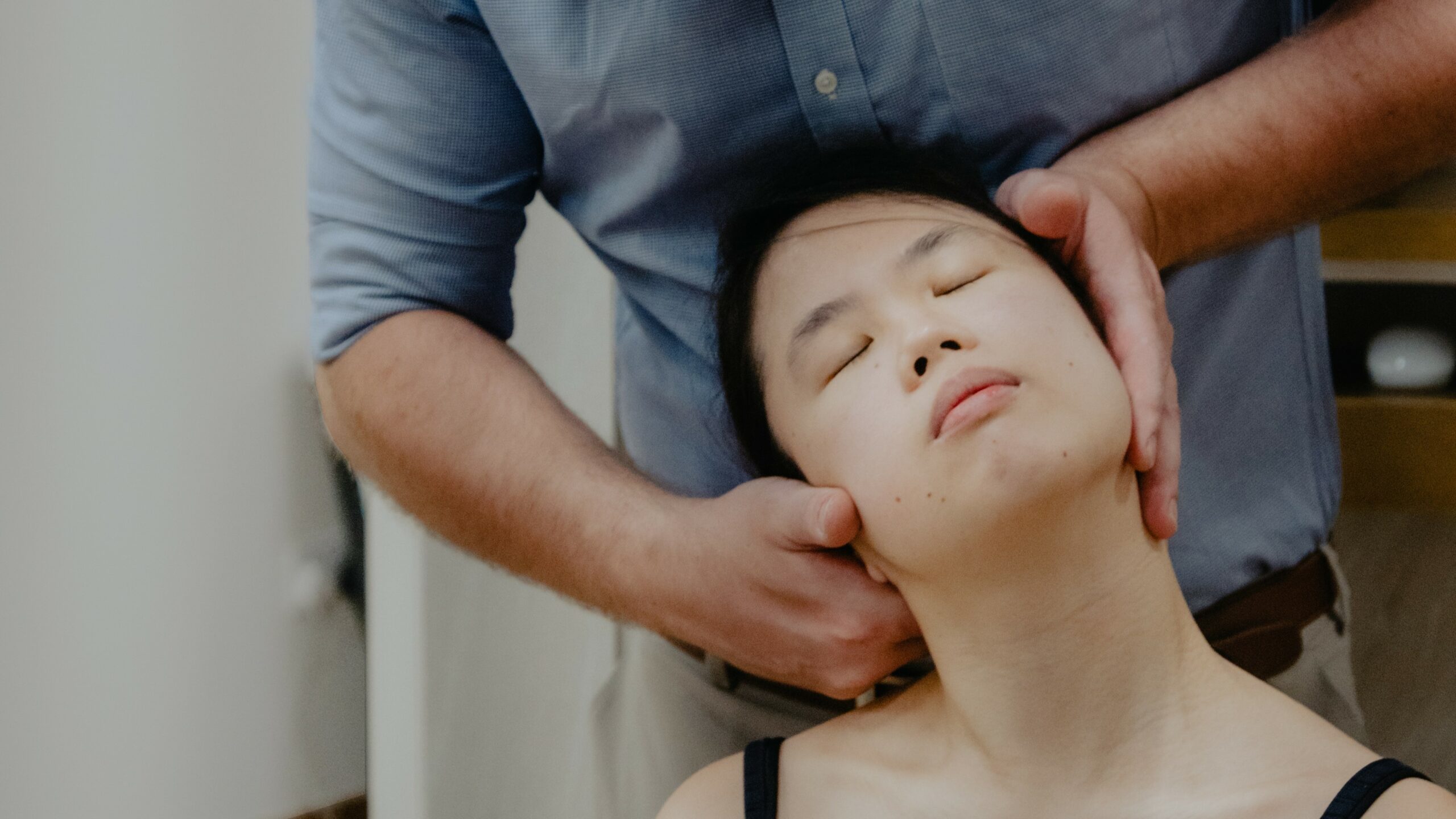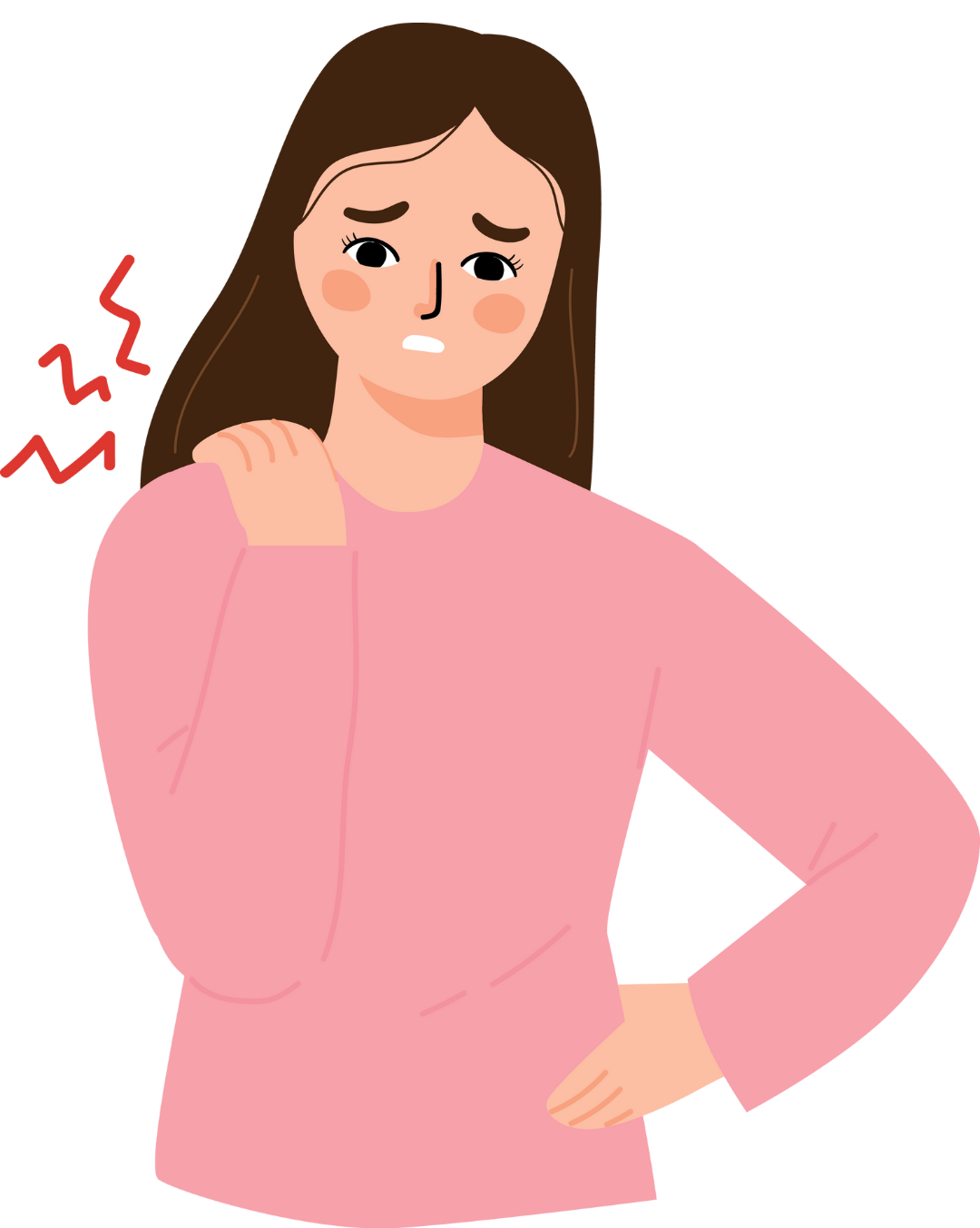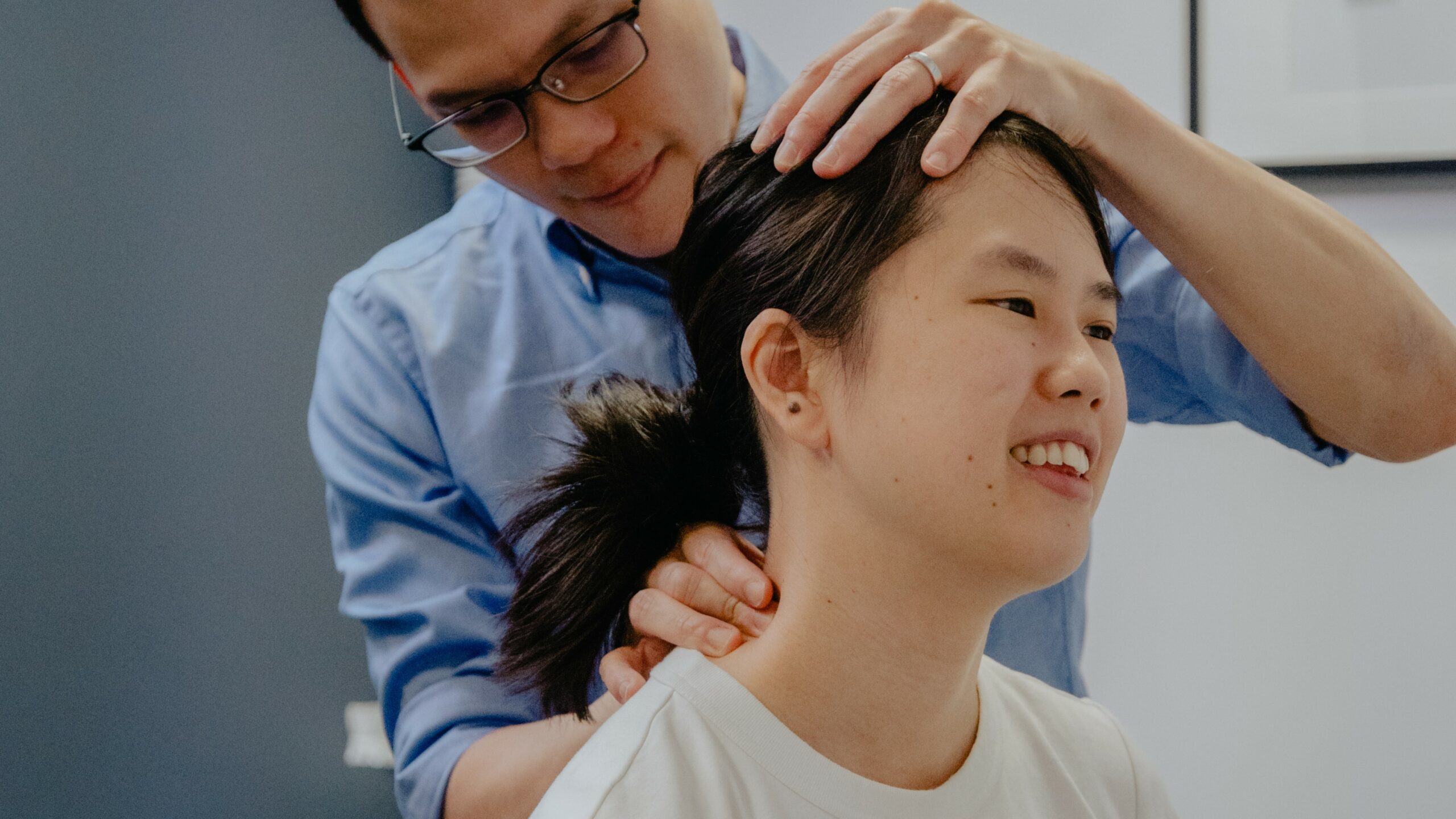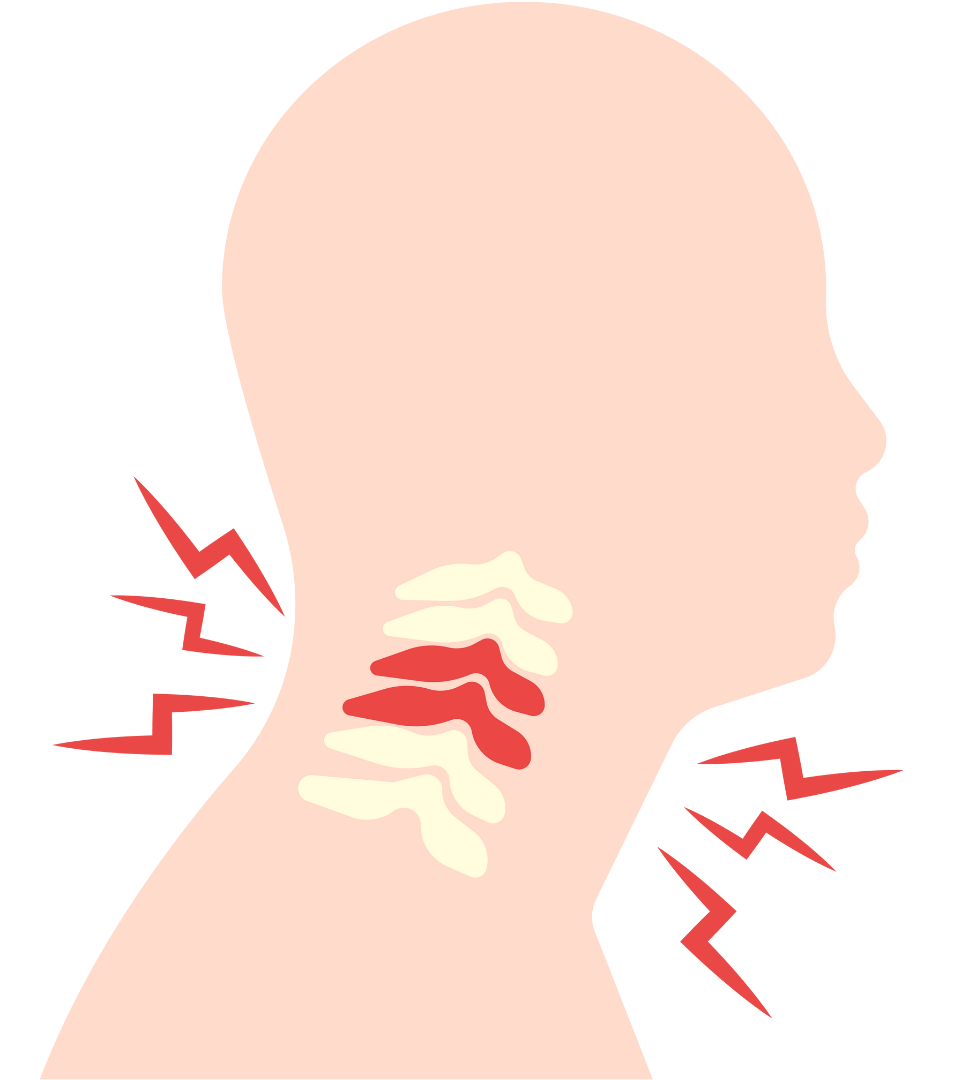Neck pain: Causes & how to relieve it
Neck pain is a common woe that most of us have experienced at some point in our lives. But before reaching for painkillers, have you considered natural ways to alleviate your neck pain?

🚨 Get >65% OFF @ $35 (U.P. $105) just by following our Instagram – @chirosingapore CLICK HERE TO BOOK

Experiencing neck pain? Neck pain is a common discomfort often linked to factors like poor posture, muscle strain, or spinal issues. It can range from mild to severe and may extend to the shoulders and upper back.
While lifestyle changes and exercise can help manage neck pain, they might not address its root cause. Chiropractic care offers specialised solutions, addressing the underlying spinal issues through techniques like spinal adjustments. If you’re dealing with persistent neck pain, our team at Chiropractic Singapore is here to help you find relief and improve your neck and spine’s health.

Before we delve into the treatment options, it’s essential to understand the different types of neck pain. Neck pain is typically classified into two main categories:
Understanding the distinction between acute and chronic neck pain is crucial, as it can significantly impact your choice of treatment and management strategies. Now that we’ve got that cleared up, let’s explore the various causes of neck pain.


Neck pain can have a multitude of causes, and identifying the root cause is the first step towards effective treatment. Here are some common culprits:
Our modern lifestyle, which often involves prolonged hours hunched over computers and smartphones, can wreak havoc on our necks. Poor posture can strain the muscles and ligaments in the neck, leading to discomfort and pain.
Engaging in activities that involve heavy lifting or repetitive neck movements can lead to muscle strain. This strain can result in acute neck pain, which usually subsides with rest and gentle stretches.
Herniated discs in the cervical spine can put pressure on the nerves, causing neck pain. This condition can also lead to radiating pain and numbness in the arms and shoulders.
Osteoarthritis and rheumatoid arthritis can affect the neck’s joints and cause chronic neck pain. These conditions often worsen with age.
Stress can manifest physically, and one common symptom is tension in the neck and shoulders. Chronic stress can exacerbate neck pain and lead to muscle stiffness.
Believe it or not, your sleeping position matters. Sleeping with an improper pillow or in an awkward position can strain the neck and lead to discomfort upon waking up.
Accidents, such as car crashes or falls, can result in traumatic neck injuries like whiplash. These injuries may require immediate medical attention.
Understanding the specific cause of your neck pain is crucial for selecting the right treatment approach.
Waking up with neck pain or a stiff neck is an experience that many of us can relate to. It can put a damper on your day before it even begins. Several factors can contribute to this uncomfortable phenomenon:
The type of pillow you use can significantly impact your sleep quality and neck health. A pillow that is too high or too low can cause your neck to bend unnaturally, leading to strain and stiffness.
Your sleeping position matters. Sleeping on your stomach can force your neck into an awkward angle, while sleeping on your side or back with proper pillow support is generally considered healthier for your neck.
An unsupportive or overly firm mattress can also contribute to neck pain. Your mattress should provide adequate spinal alignment to prevent neck discomfort.
Activities like reading or watching TV in bed with your head propped up on multiple pillows can strain your neck muscles over time.
Sleep disorders like sleep apnea can disrupt your sleep and lead to morning neck pain due to unusual sleeping positions.
Addressing the root cause of your morning neck pain often involves evaluating your sleeping habits and making necessary adjustments.
Now that we’ve explored the causes of neck pain, let’s move on to practical ways to relieve it without medication. One of the most effective approaches is incorporating neck exercises and stretches into your daily routine. These exercises can help improve flexibility, reduce muscle tension, and promote better posture. Here are some simple yet effective exercises and stretches to try:

Performing these exercises and stretches regularly can help relieve neck pain and prevent it from recurring. It’s essential to do them gently and without force, as excessive strain can worsen the discomfort. If you experience any pain or discomfort while doing these exercises, stop immediately and consult a healthcare professional.
In addition to exercises and stretches, several natural remedies can help alleviate neck pain and promote overall neck health. These remedies are drug-free and can be integrated into your daily routine:
Applying heat to the affected area can help relax tight muscles and increase blood flow. You can use a hot water bottle, a heating pad, or take a warm bath to soothe neck pain. Be sure to use a towel or cloth to protect your skin from direct heat.
Cold packs or ice wrapped in a cloth can reduce inflammation and numb the area, providing relief from acute neck pain. Apply the cold pack for 15-20 minutes at a time, being careful not to apply it directly to the skin.
Epsom salt baths are known for their muscle-relaxing properties. Dissolve Epsom salt in a warm bath and soak for 15-20 minutes to help ease muscle tension in the neck and shoulders.
Invest in a supportive neck pillow or cervical collar to maintain proper neck alignment while sleeping or sitting. These aids can help reduce strain and promote healing.
Over-the-counter topical creams or gels containing ingredients like menthol or capsaicin can provide temporary relief from neck pain when applied to the affected area.
Acupuncture involves the insertion of thin needles into specific points on the body to stimulate energy flow and relieve pain. Many people find relief from chronic neck pain through acupuncture sessions.
 Practices like yoga, tai chi, and meditation can help reduce stress and tension, which can contribute to neck pain. These mind-body techniques promote relaxation and improve overall well-being.
Practices like yoga, tai chi, and meditation can help reduce stress and tension, which can contribute to neck pain. These mind-body techniques promote relaxation and improve overall well-being.
A gentle neck massage can help relax tense muscles and improve blood circulation. You can use your hands or seek the services of a professional massage therapist.
Proper hydration is essential for maintaining the health of your muscles and joints. Be sure to drink an adequate amount of water throughout the day to prevent muscle stiffness.
 If you spend long hours working at a desk, ensure that your workspace is ergonomically designed. This includes having an adjustable chair, an ergonomic keyboard and mouse, and a computer monitor at eye level to promote good posture.
If you spend long hours working at a desk, ensure that your workspace is ergonomically designed. This includes having an adjustable chair, an ergonomic keyboard and mouse, and a computer monitor at eye level to promote good posture.
Incorporating these natural remedies into your daily routine can complement other non-medication approaches to managing neck pain effectively. However, if your neck pain persists or worsens, it’s essential to consult with a healthcare professional to rule out any underlying medical conditions.
When it comes to seeking professional help for neck pain, you have two primary options: a chiropractor or a medical doctor. The choice between the two depends on the nature and severity of your neck pain, as well as your personal preferences.
A medical doctor, typically a general practitioner or orthopaedic specialist, is your go-to option if:
Medical doctors can perform diagnostic tests, such as X-rays, MRIs, or CT scans, to identify the root cause of your neck pain. They can also prescribe medications or recommend surgical interventions when necessary.
Chiropractors are healthcare professionals who specialise in the musculoskeletal system, including the spine and neck. You may consider seeing a chiropractor if:
Chiropractors use manual manipulation techniques, such as spinal adjustments, to realign the spine and alleviate musculoskeletal pain. They may also provide advice on lifestyle changes, exercises, and stretches to improve neck health.
It’s important to note that chiropractic care may not be suitable for everyone, especially in cases of severe injury or underlying medical conditions. Make sure you head in for a spinal check-up to see if chiropractic care is right for you.
If you’re dealing with a stiff neck, you might be wondering whether to schedule an appointment with a chiropractor or a massage therapist. Both options can be effective, but they serve different purposes and have distinct approaches to relieving neck stiffness.
Chiropractors specialise in diagnosing and treating musculoskeletal conditions, including neck stiffness. If you choose to see a chiropractor for a stiff neck, here’s what you can expect:
Massage therapists specialise in manipulating soft tissues and muscles to promote relaxation and relieve tension. If you opt for a massage therapist to address your stiff neck, here’s what you can expect:
It's important to note that chiropractic care is not a one-size-fits-all approach, and the choice of adjustment technique may vary based on the patient's condition, preferences, and the chiropractor's expertise. Before undergoing any chiropractic treatment for neck pain, consult with a qualified chiropractor who can assess your specific needs and create a personalised treatment plan.
Military neck, also known as cervical kyphosis, is a condition characterised by an abnormal curvature of the cervical spine. In this condition, the neck lacks its normal curve and appears straighter or even slightly bent backward. Cervical kyphosis can cause discomfort, stiffness, and neck pain. But can a chiropractor help with this condition?
The effectiveness of chiropractic care for cervical kyphosis largely depends on the severity and underlying causes of the condition. Here’s what you need to know:
In more severe cases of military neck or cervical kyphosis, where the curvature is significant or associated with structural abnormalities of the spine, chiropractic care may not be the primary or sole treatment option. Severe cervical kyphosis can have serious consequences, such as spinal cord compression and neurological symptoms.
Medical management, which may include surgery or other interventions, is often required for severe cervical kyphosis to address the underlying structural issues. Chiropractic care in such cases may be used in conjunction with medical treatment to manage pain and improve mobility.

The number of chiropractic sessions you may need for neck pain can vary widely based on several factors, including the cause and severity of your pain, your overall health, and how your body responds to treatment. Chiropractic care is often individualised to meet the specific needs of each patient. Here’s what you can expect in terms of the number of sessions:
For acute neck pain, which is typically short-term and often related to muscle strain or minor injuries, you may find relief after just a few chiropractic sessions. Many people experience significant improvement in their symptoms within a few weeks of regular adjustments.
Chronic neck pain, which persists for more than three months, may require a more extended course of chiropractic care. Your chiropractor will work with you to develop a care plan tailored to your needs. This plan may involve more frequent sessions initially, followed by a gradual reduction in frequency as your symptoms improve.
After the initial phase of chiropractic care, some individuals with chronic neck pain may choose to continue with periodic maintenance chiropractic care. These maintenance sessions, typically occurring less frequently than their previous care plan, are aimed at preventing the recurrence of neck pain and maintaining optimal spinal health.
It’s important to note that individual responses to chiropractic care can vary. Some people may experience rapid relief and require fewer sessions, while others may need more extended care to achieve the desired results. Your chiropractor will continuously assess your progress and make necessary adjustments to your care plan.
In addition to chiropractic care, your lifestyle factors play a crucial role in managing neck pain. Your chiropractor may provide guidance on posture, ergonomics, exercises, and stretches that you can incorporate into your daily routine to support your neck health and reduce the need for frequent chiropractic sessions.
Ultimately, the duration and frequency of chiropractic sessions for neck pain should be discussed with your chiropractor. They will consider your specific condition and goals to create a tailored care plan that best addresses your needs.
While neck pain may be concerning, most cases of neck pain can be effectively managed without the need for surgery, especially when addressed early. If you’ve been experiencing persistent neck pain and find that it’s not improving with home remedies or stretches, it’s advisable to seek professional care. Identifying the underlying cause of your neck pain is crucial in order to prevent it from getting worse.
At Chiropractic Singapore, our team of experienced professionals specialises in diagnosing and addressing neck pain, and we can assess whether chiropractic care can provide the relief you need. Many individuals have successfully overcome neck pain with the right care plan and time.
We invite you to visit one of our four convenient locations for a comprehensive spinal check-up, which can be the first step on your path to recovery.
Note: The above information is not a substitute for a diagnosis or any form of medical care. Symptoms and treatments differ from person to person, and one should consult a chiropractor or a medical professional for an accurate diagnosis and recommendation.
Enjoy $55 off your first check-up (U.P. $105) using the promo code ONLINE50 at check-out.
Pssst… follow us on Instagram (@chirosingapore) to get an additional $15 off @ $35 only, use promo code IG35.
Enter your e-mail to start the booking process.
Note: X-rays and the first adjustment are not included in this promotion. For the safety of our patients, there will be no adjustments during the first visit.